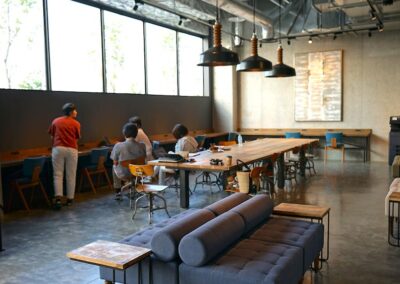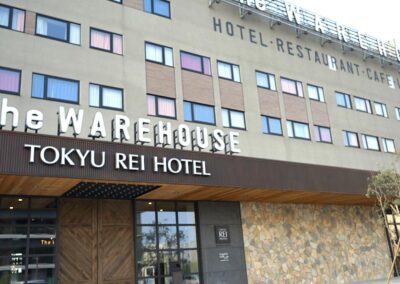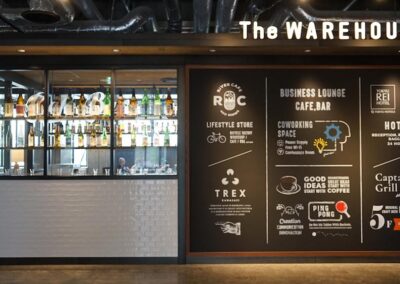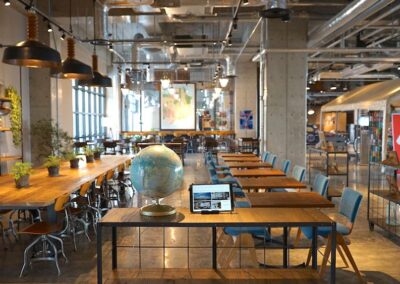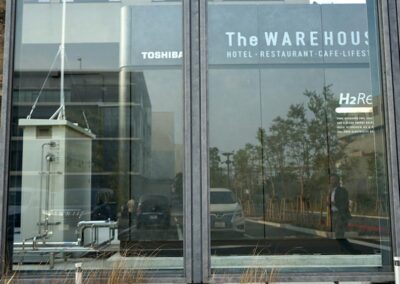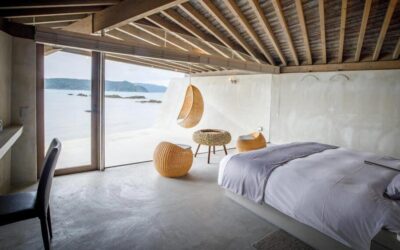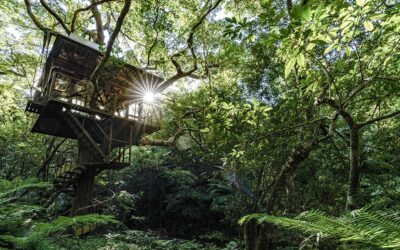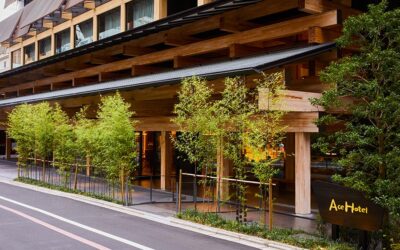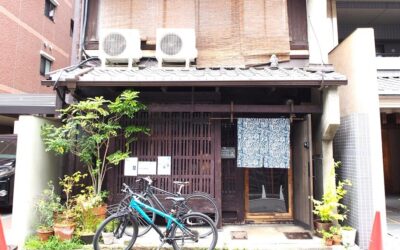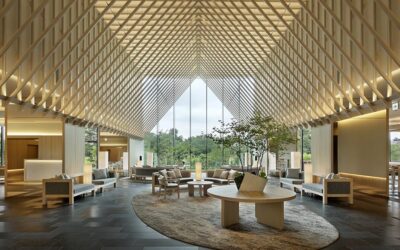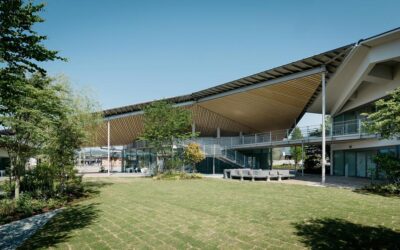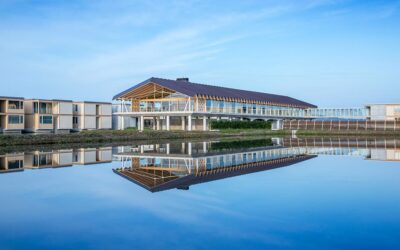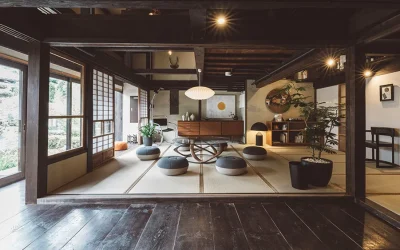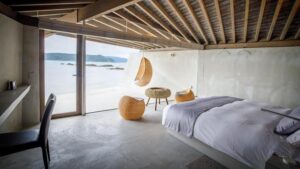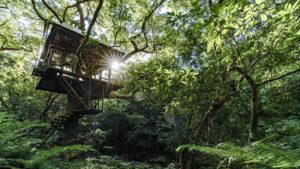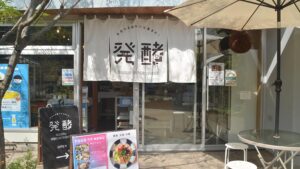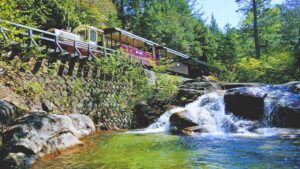World’s first resort hotel powered by hydrogen generated from waste plastics
Kawasaki City in Kanagawa Prefecture was once known for its numerous petrochemical complexes and its role in the Keihin industrial zone. Some people might still associate the city with factories and poor security.
However, Kawasaki has been undergoing a significant transformation, positioning itself as a center for music and film. A chic urban resort hotel symbolizing this change opened near the waterfront opposite Haneda Airport. This hotel is the world’s first “hydrogen hotel,” using hydrogen energy derived from used plastics.
The hotel is situated on a former factory site next to the Tama River, across from Haneda Airport. The area, called King Skyfront, hosts around 60 companies leading the fields of medical, environmental, life sciences, and nursing robots in Japan. As a national strategic special zone, it enjoys regulatory and tax benefits, making it a great place for businesses.
Kawasaki King Skyfront Tokyu REI Hotel was built to encourage communication and open innovation. As a result, a coworking space is available at the hotel’s front desk.
The interior design is inspired by Brooklyn, New York, and is very fashionable. The hotel also serves as an event space for fashion magazine photoshoots, web commercials, new car test drives, and music events sponsored by Kawasaki City.
Colorful curtains decorate the guest room windows, symbolizing Kawasaki’s diversity. The city is known for its cutting-edge technology, arts and culture, and natural beauty, attracting people of various nationalities, ages, and genders.
Guests visit the hotel for various reasons. On weekdays, many employees from nearby companies use the hotel for training and business trips. On weekends, couples and families from the Kanto region come to stay. There are many repeat customers who use the hotel for business entertainment and return with their families on weekends.
The Tama River flows gracefully in front of the hotel, and many people enjoy running and cycling in the nearby wetlands. Guests can also appreciate the night view of Haneda Airport across the river while enjoying a drink.
The world’s first “hydrogen hotel” uses clean hydrogen energy that doesn’t emit CO2 during power generation. Showa Denko has been recycling used plastics into ammonia chemically. This project began with the idea of using hydrogen derived from plastics as a resource for an upcoming hydrogen society.
The Japanese government is also working toward a hydrogen society, and this project has been adopted as an environmental ministry project called “Regional Circulation Type Hydrogen Local Production and Consumption Model Demonstration Project Using Used Plastic Derived Low Carbon Hydrogen.”
There are already hotels in Japan using hydrogen energy, but two factors make Kawasaki King Skyfront Tokyu REI Hotel the world’s first “hydrogen hotel.”
First, the hydrogen comes from used plastics collected from households. Furthermore, toothbrushes and hairbrushes used in the hotel’s amenities are collected separately and sent to Showa Denko’s factory. They are then returned to the hotel as hydrogen energy in a circular system. Guests can contribute to Kawasaki’s environment without consciously thinking about it.
Second, hydrogen is sent directly from Showa Denko via a 5-kilometer pipeline to the hotel’s pure hydrogen fuel cell, instead of being transported by truck. This results in a lower carbon system, as no CO2 is emitted from truck transportation.
The hydrogen fuel cell installed outside the hotel can generate up to 100 kilowatts per hour, providing 2,400 kilowatts over 24 hours. Additionally, waste heat generated during power production can be used to heat water, making it possible to provide hot water for approximately 200 unit baths.
Currently, the hydrogen fuel cell supplies about 10% of the hotel’s total electricity demand, and it is expected to increase to 30% within a few months.
This new model aims for a low-carbon society and realizes local production and consumption of hydrogen. At present, there are no concrete plans for further domestic or international expansion. However, it would be great to see collaborations with companies, organizations, and local governments that are striving for decarbonization, leading to the adoption of this technology in hotels and other commercial facilities.
Originally published on IDEAS FOR GOOD.

